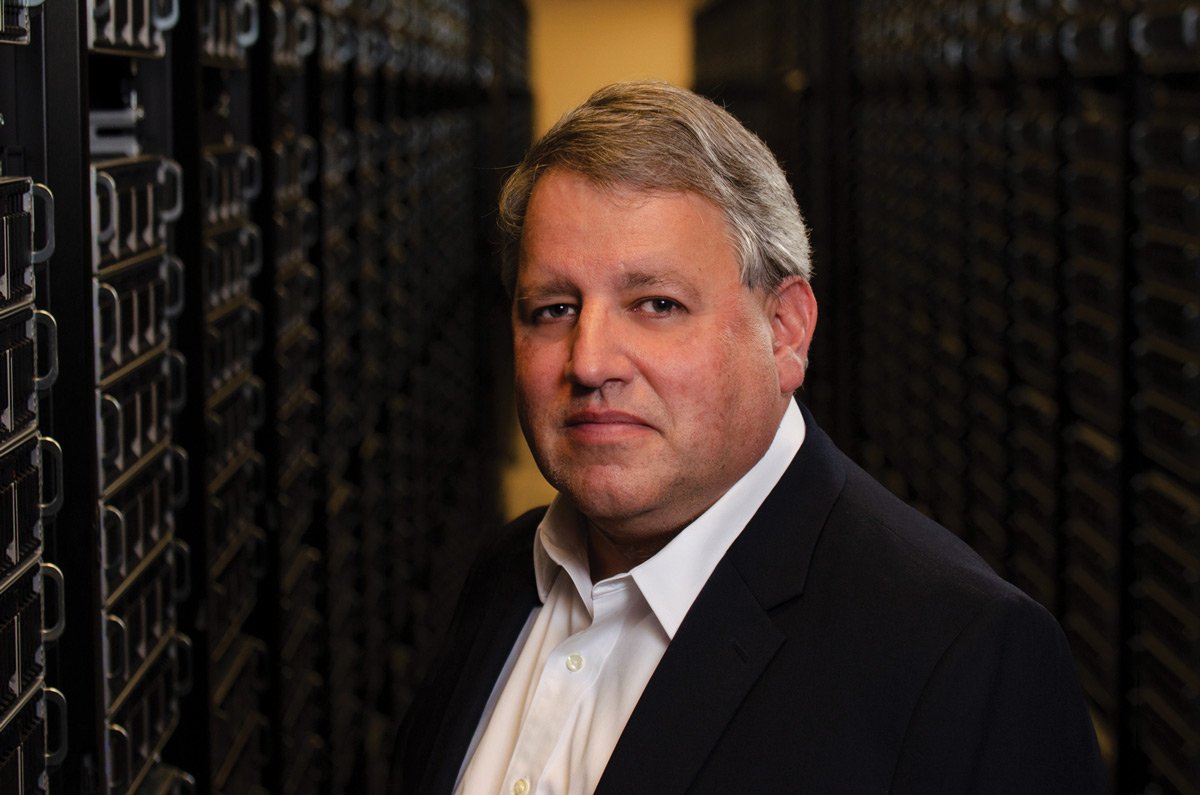People & Programs
Dan Stanzione
A Letter From the Director
TACC Executive Director Dan Stanzione reflects on the factors that have made TACC a success
TACC was founded 20 years ago on the premise that computational simulation was becoming the “third mode of science” and, through the expert application of large scale computing, TACC would power discoveries that would change the world.
And power discoveries we have. As I look back over our past two decades, I see five characteristics that have been key to making TACC successful.
SYSTEMS — From the beginning, the engine at the heart of TACC has been big computers, designed to tackle the biggest challenges. The first TACC system ran at 50 gigaflops. The most recent one is close to 40 million gigaflops — almost a million times faster. Our systems have all been designed to not only be big and fast, but also to be reliable, and, most of all, usable by the research community.

SCIENCE — Our focus has always been not on how fast we can make the systems run, but on the science they can enable. Tens of thousands of researchers, from students to members of the National Academies, have run billions of hours of calculations at TACC. This includes multiple Gordon Bell Prize winners, and even Nobel laureates. Our systems have been used to understand matter at the nanoscale, and the universe at, well, universal scale. We’ve helped process urgent data for pandemics, hurricanes, tornadoes, and earthquakes. All this science requires big computers, but that’s not all it takes.
DATA — Within a few years of our founding, we realized that big computing meant equally big data and the challenges that come with it. We need to be able to read and write data fast enough to keep our big computers fed, and we need to preserve it, curate it, publish it, reproduce it, and make sure researchers can share it. TACC is now home to hundreds of datasets, from patient data for personalized cancer treatments to archives of hurricane tracks.
TOOLS — Data and computing require software and algorithms. The team at TACC that builds these tools has been the fastest growing part of TACC over the last few years. From modules that manage the complexity of scientific software to APIs that turn data into action, software and tools are critical to scientific productivity.
PEOPLE — It is the people most of all who make TACC special. The people who work at TACC, who use TACC, who collaborate with TACC, who fund, promote, and partner with TACC. Our success has always been about gathering a set of extraordinary people with the brilliance, passion, and drive to tackle our mission. It’s been an incredible privilege to work among and lead the nearly 200 current TACCsters, and the few who made their contributions and moved on.
We’ve had incredible support from UT System and UT Austin, both from the leadership and our incredible research community; from Peter and Edith O’Donnell and their Foundation; from our two longest-lasting industry partners, Intel and Dell; and from the National Science Foundation, who believed in us enough to fund so many of our large proposals to make our dreams of world-leading impact a reality. To all of you, my very deepest thanks.

